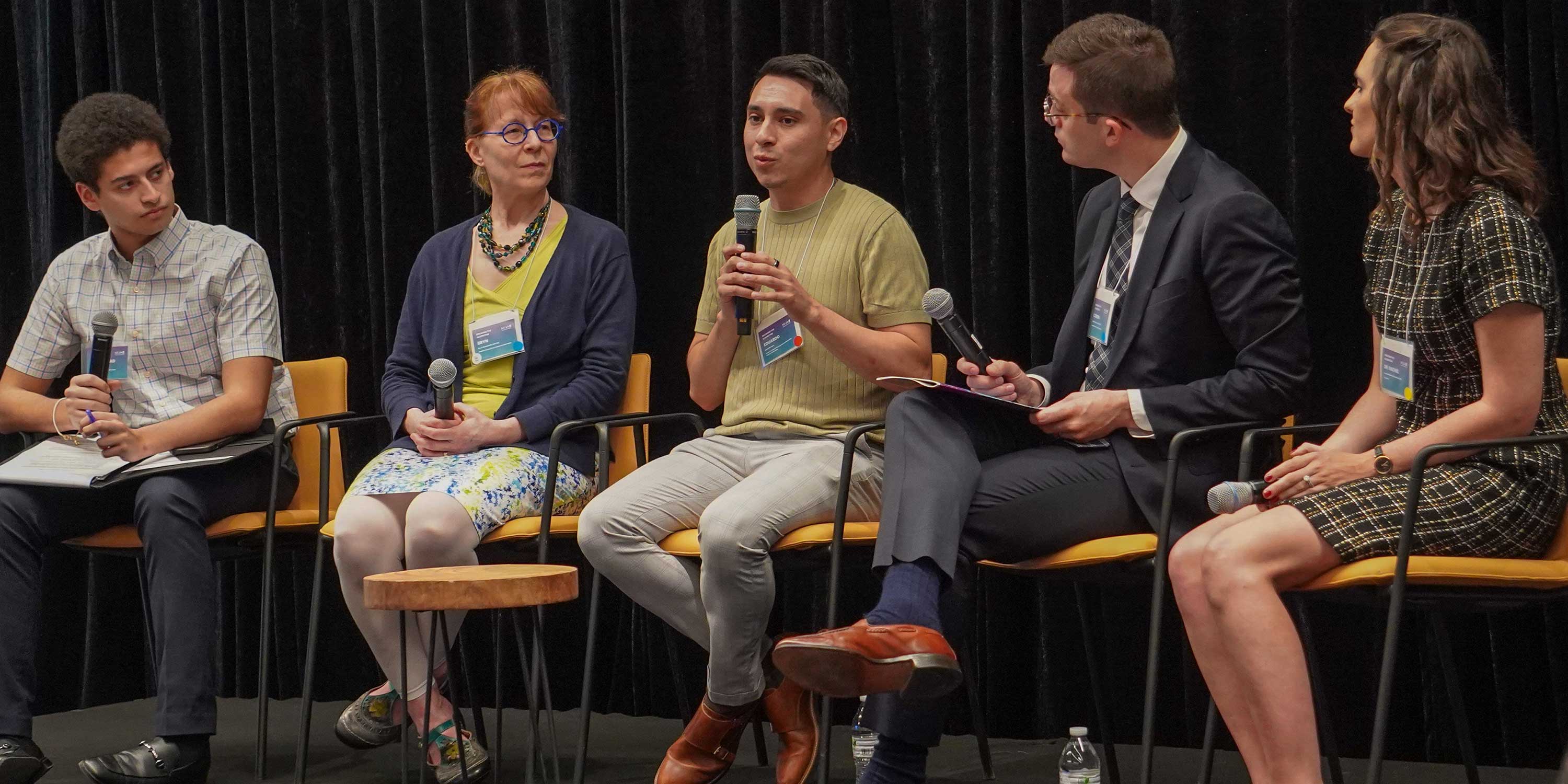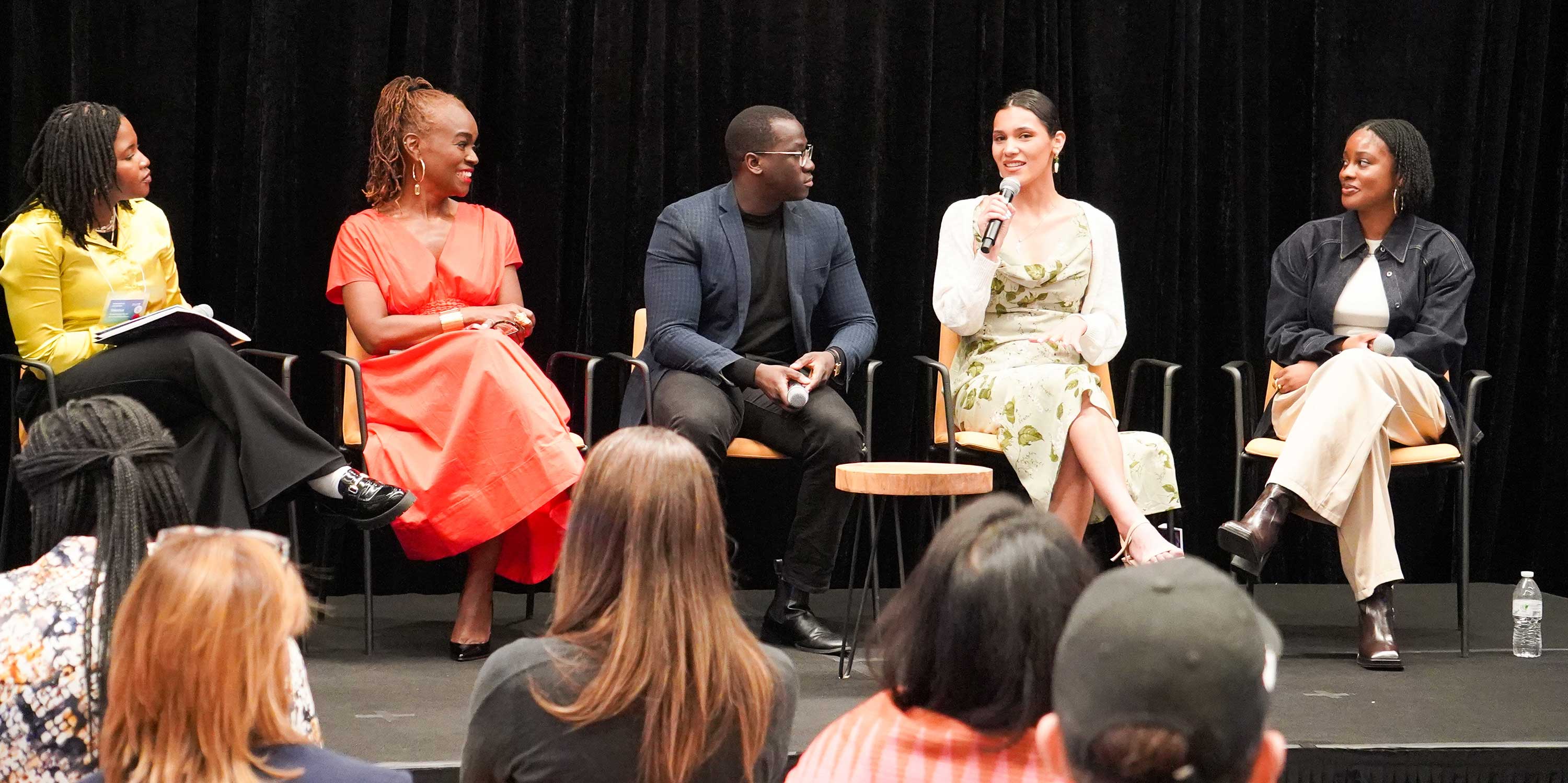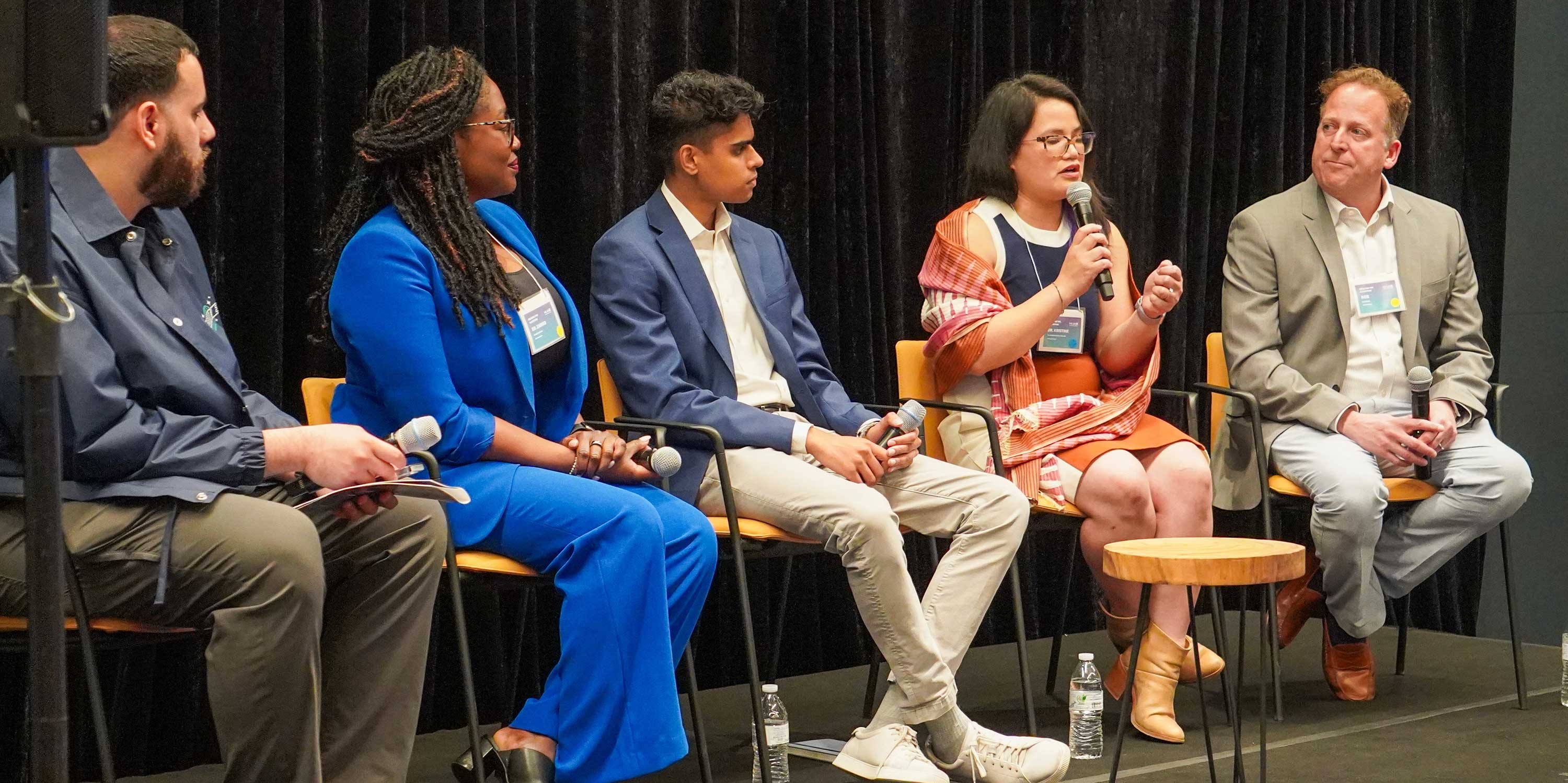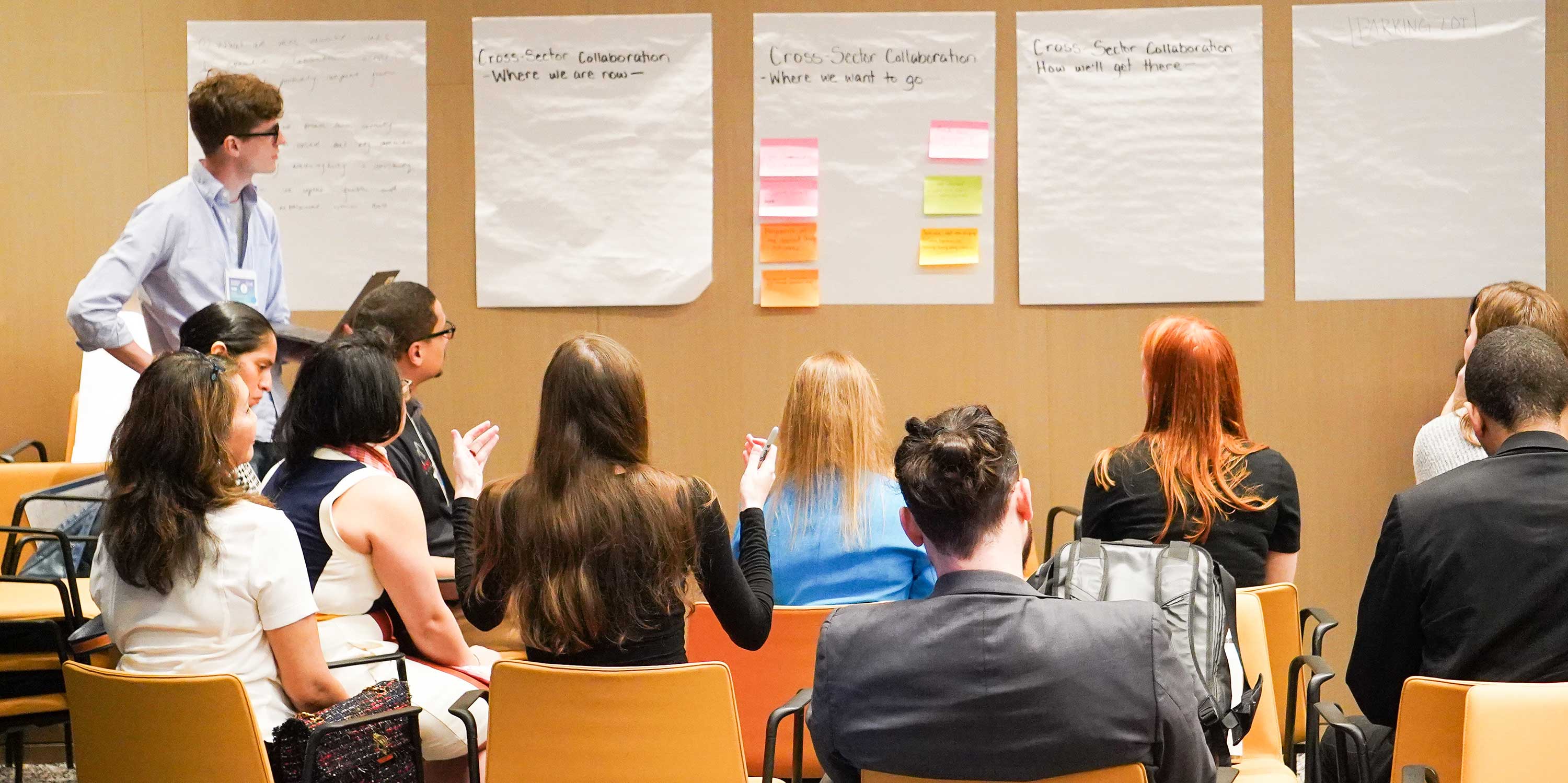
In an era where social media shapes the daily lives of young people, understanding its impact on mental health is critical. In light of this, Mental Health America recently hosted “Breaking the Algorithm,” a youth-led summit seeking to foster collaboration and creativity among key stakeholders from diverse sectors related to social media and/or youth mental health. Each session, workshop, and discussion was a step toward better understanding the issue at hand and better supporting the digital wellbeing of young people.
Here are some impactful moments from each session.

In the first intro session, “Bridging Knowledge Gaps in Youth Mental Health and Social Media,” moderator Mohammad Shedeed led an inspiring discussion with panelists Corbin Evans, JD, MPP, MBA; S. Bryn Austin, ScD, MS; Rachel Hanebutt, EdM, MA, MS; and Eduardo Lara. The session confronted popular misconceptions and myths about social media platforms and the reciprocal relationship they have with mental health. Panelists also discussed potential designs for better platforms.
Key takeaways:
- Youth are not a monolithic group and should not be treated as such when making decisions in this realm.
- Social media is not all good or bad - it can be both!
- Not enough people are investigating the relationship between social media and mental health, in part due to insufficient funding and withheld data from technology companies.

During the second session, titled "Echoes of Inequity: Understanding the Disparate Experiences of Youth Online," moderator Tinuola Adebukola, MPH, CPH led a dynamic discussion with panelists Alfiee Breland-Noble, PhD, MHSc; Joel Bervell; Alejandra Gomez; and Jacquelyn Ogorchukwu Iyamah, MS. Participants focused on the unique challenges faced by marginalized communities within the digital landscape, exploring topics such as racial trauma, misinformation, and the need for equitable design features on social media platforms.
Key takeaways:
- Challenges that marginalized youth face offline are also perpetuated online, highlighting the importance of creating inclusive digital spaces.
- Racial trauma and misinformation perpetuated on social media platforms exacerbate mental health challenges among youth of color, underscoring the need for trauma-informed solutions.
- Equitable design features and co-creation with those with lived experience are essential for mitigating the impact of racial trauma and fostering a safer online environment.

In the summit’s third session, titled “Integrating Multidisciplinary Perspectives to Redefine the Digital Landscape,” moderator Mahmoud Khedr led a thought-provoking discussion with Zainab Okolo, EdD, LCMFT; Zamaan Qureshi; Rob Rasko; and Kristine Gloria, PhD. The discussion sought to uncover what it takes to influence the digital ecosystem positively through a multidisciplinary lens and cross-sector collaboration.
Key takeaways:
- Young people have lived experiences that make them experts on the technology that they use, therefore efforts should be made to bring young people into meaningful discussions.
- The uptick in popularity of mental health has led to increased misinformation and pathologization online, potentially causing unnecessary harm.
- Stakeholders should be mindful of the fact that social media use can be influenced by how youth were raised, including their education and socioeconomic status.

The fourth, and final session of the “Breaking the Algorithm” summit featured four design sprints to encourage creative problem-solving and collaboration among attendees. Said sprints were led by youth leaders, and each focused on a key aspect of the social media landscape: equity (led by Isabel Ohakamma), product features (led by Keegan Lee), business models (led by Mahmoud Khedr), and cross-sector collaboration (led by Sam Gerry). The structure of each sprint was established by Omri Gal and Sami Kosaraju, ultimately encouraging members of each group to consider where we are now, where we want to go, and how we’re going to get there. This session served as a valuable way for summit attendees to ideate with peers and foster the development of new initiatives aiming to build a healthier digital ecosystem.
In sum, “Breaking the Algorithm” was a valuable reminder that young people can, and should, be leading the way as we begin to transform the digital landscape. With that said, this summit merely marks the beginning of our commitment to making meaningful change in this landscape. Keep an eye out for information on our research related to the summit later this year!
Want to help us create healthier online spaces? Share your thoughts through our survey.




